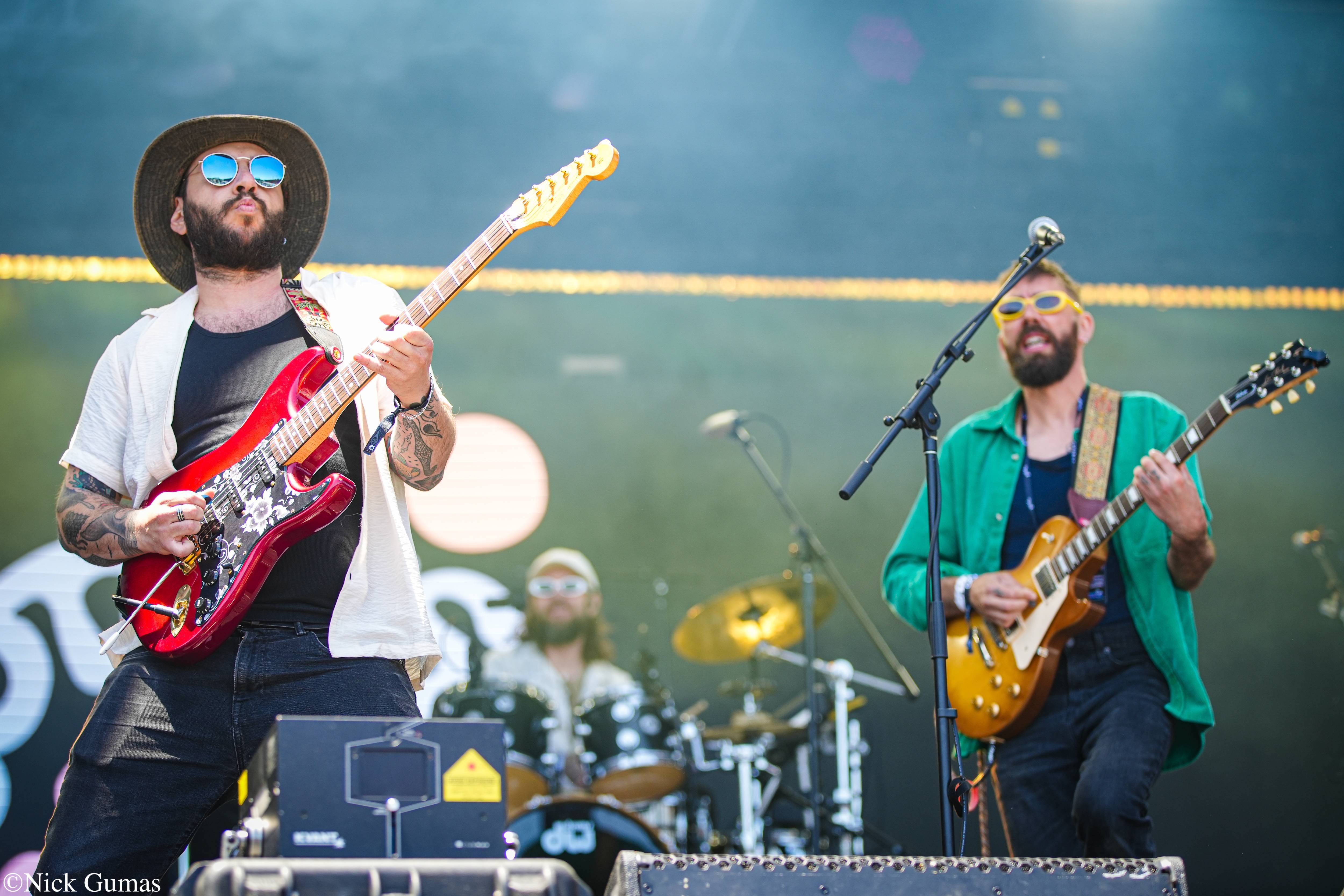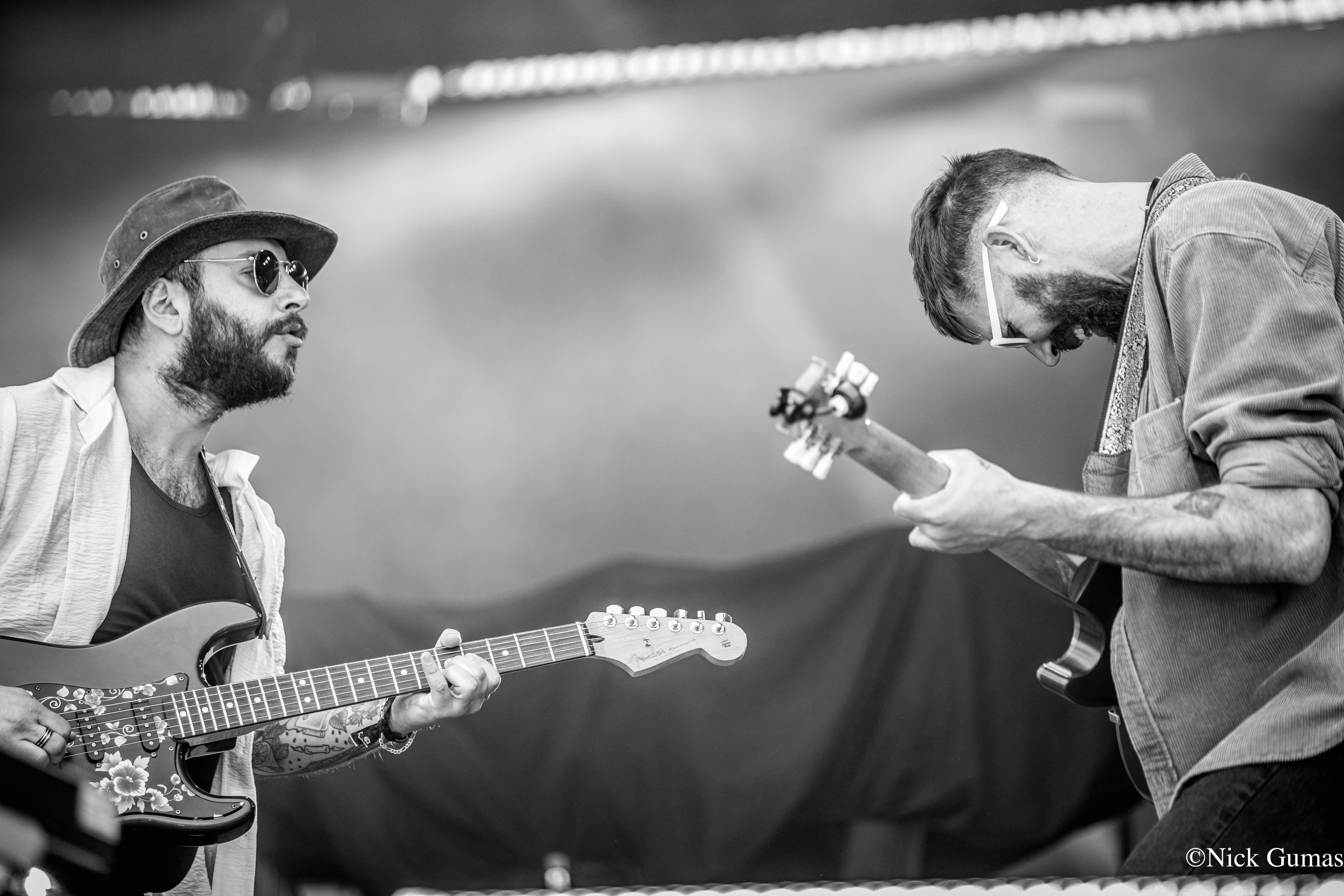Maine-based outfit Coyote Island has certainly taken off over the last few years with no signs of slowing down. Beginning as the solo project of singer-songwriter Mike O’Hare, it has taken flight as a full band over the years, adding a level of depth through the unique background of every musician they bring into the fold. Grateful Web got to sit down with the group at this year’s Cali Roots festival and in our time speaking with these men as well as seeing them play live, it was clear their passion for their art is undeniable, as well as their friendship with each other. An ardent group, they spoke from the heart on a range of topics including the inspiration they draw from jam bands, seizing opportunity during the pandemic lockdowns, and how they strive to still have fun with their work.
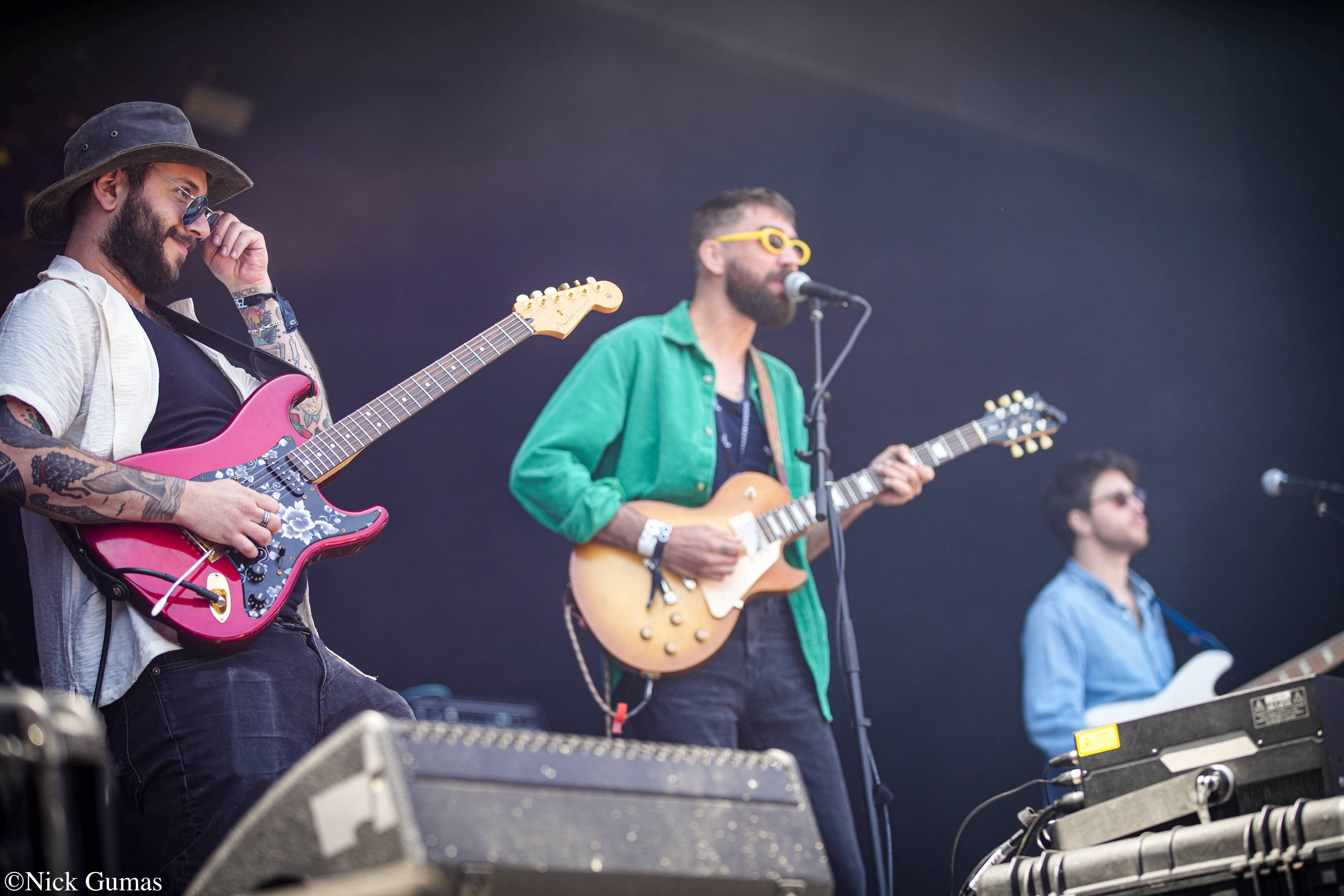
Grateful Web: The newest single you’ve been featured on, Ocean, just dropped. How do you feel about the reception both, live and recorded?
Mike O’Hare: So, that song actually was written by a good friend of mine named Jonah Tolchin. And so he recorded that and featured me on it. We haven't played that one as a band yet, but the response to the recording has been really, really good. I think he wanted it to be a kind of windows down summer kind of song, you know.
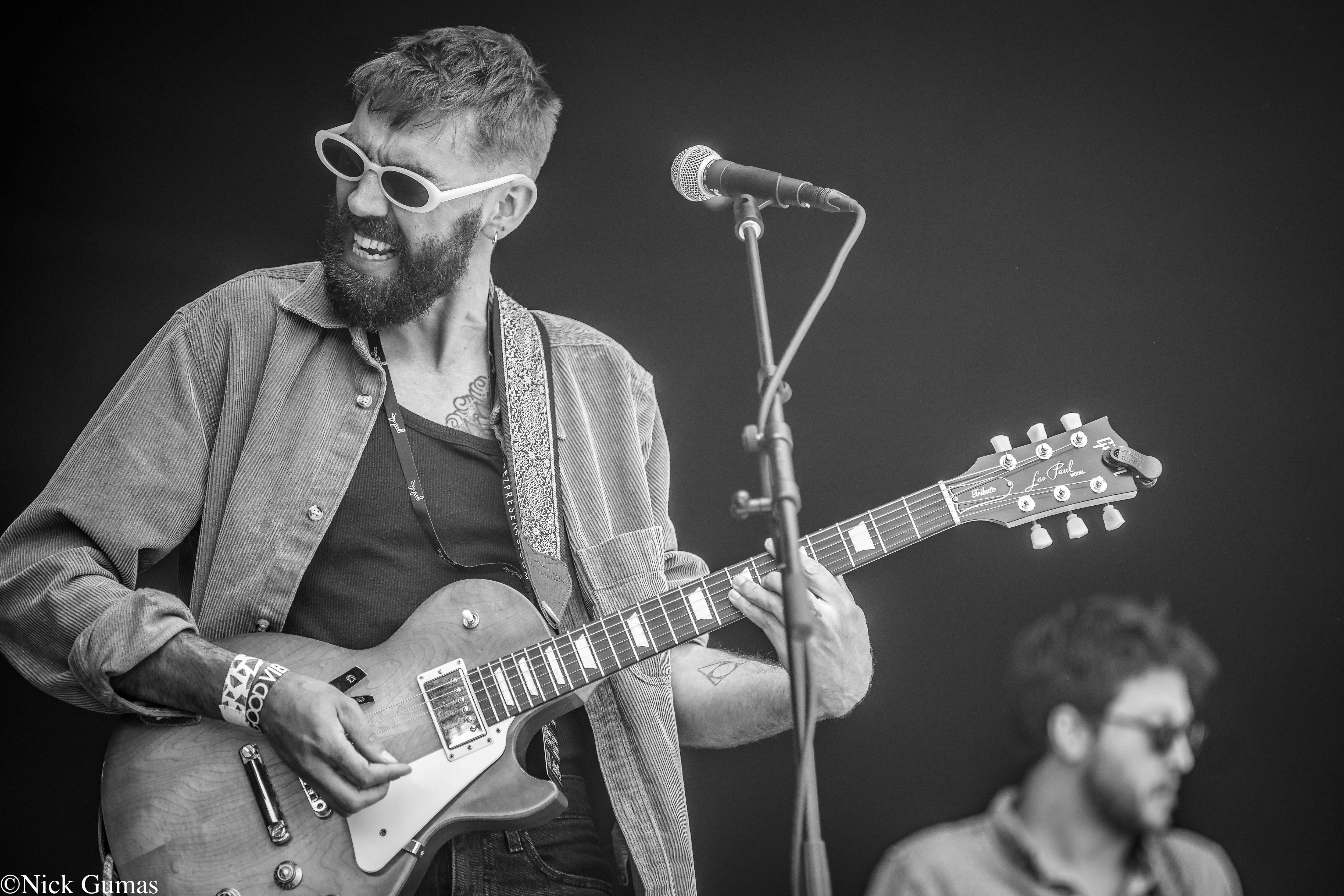
GW: Your work really started to expand over 2020. What impact, if any, do you think the pandemic had on your career?
MO: Yeah, it was definitely a time when, I mean, honestly, we were getting some money from the government, so we were able to just take a little time off of work. I remember buying some recording gear around that time and got a 505 looper and I was feeling really creative. So, yeah, sort of found the space to dedicate more time to music and get the first recordings done during that time. So that kind of launched the project.
Amir Rivera: Yeah, we didn’t even meet until 2021.
MO: Yeah, that's right. We met after that.
AR: It was cool. I think we were all doing our own things.
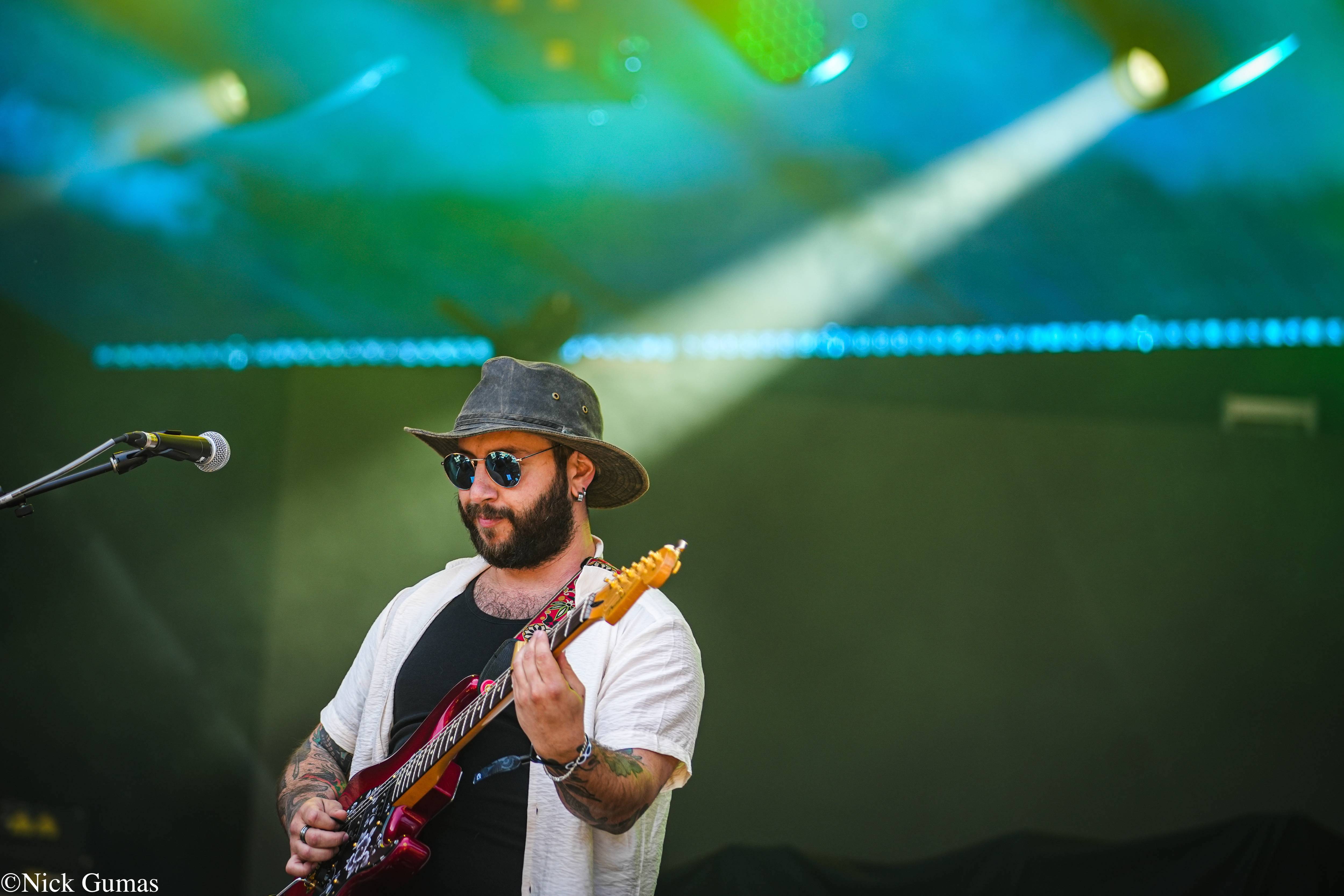
GW: You've spoken in the past about your approach to music as a “don't work, play” philosophy. I think that way of phrasing it says a lot. How do you facilitate a state of play and stay so passionate about music?
MO: I love that that's been picked up in conversations from us. I think that it makes me feel whatever energy we're creating while we're making music is perhaps what people are gonna feel when they're listening to it as well. So to think of it coming from a place of play and then being received in that same way, I really like that. It does sometimes feel like work, we have some work to do right now with our next album but I like that you brought that up because it reminds us to get back to that exact statement of play, which is how the project started and to always keep that central to the project.
Ryan Benoit: We all know Mike as a playful wizard type in the studio. He’ll be like, oh check out these demos, and he’ll have 10 of them, and that's kind of how it all started with all of us, really, was is all of us getting excited about demos. Who knows how long you've been sitting on something until it feels right, but you've always had a certain element of play on and off stage with music. It's not just live, you appreciate the process.
Garrett Jones: I think a big part of that too is not striving for perfection up front, and Mike's really good at facilitating that where it's like capturing energy in the room immediately, but not focusing on minute details all the time and just getting the feeling of something out there first, which is kind of huge.
MO: Thanks guys. I'm flattered.
AR: I also think in the state of play translate to our live shows. Some of the things that we do live on stage started as “Oh, what if we did that?” you know, like a joke, and then we actually did them. We say something like, oh, let's just try it, that'll be silly, and we play for fun at a practice, not like we're trying this because it's got to be in our set. We just do things sometimes because it would be a fun song to play when you're hanging out with your friends and sometimes it happens to sound great and that’s how some things become a part of the set, you know, stuff like that. And keeping a sense of humor, because it can be really hard to be a musician. I think there's a lot of humor and laughter in the studio spaces and that just kind of takes the edge off, too. We also record at home. Like, we would love to go do a bunch of studio stuff when we do that. We've done it before for River. We went to our buddy Nick's studio, but there's something so beautiful about being in Mike's living room just hanging out, making a fire, figuring out which Congas sound the best with this mic so that we can just have a freestyle conga take that ends up staying in the final recording while the fire is crackling. That's another thing, this dude loves catching little sounds like that. So you'll hear birds chirping, you'll hear wind, you'll hear lighters in our recordings. There's all sorts of foley happening in the recording, which is super playful, I think.
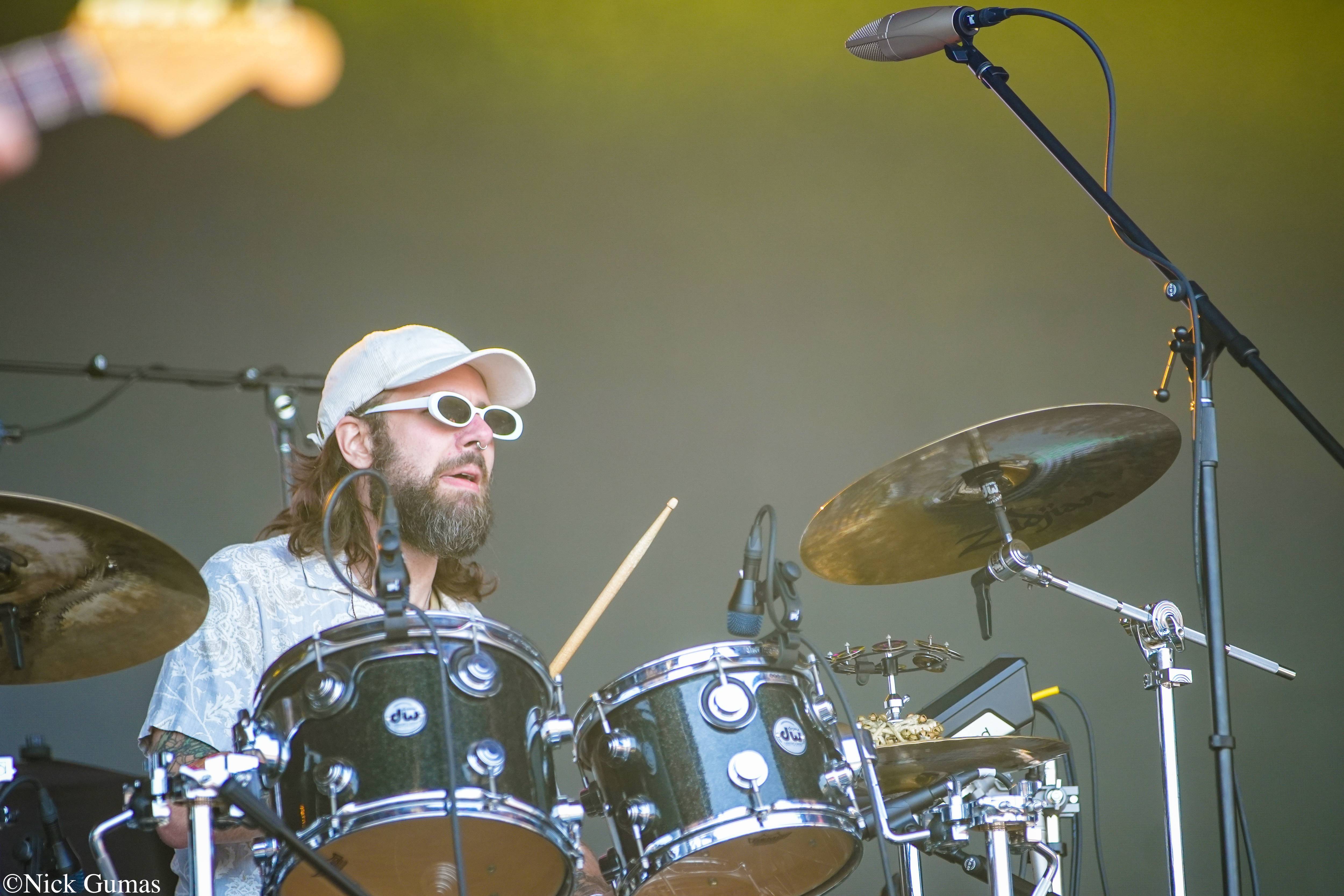
GW: With a project taking off as quickly as yours, you’re hitting a lot of “firsts.” First time in this state, first time playing that festival. Do you have any firsts coming up that you’re really excited about?
GJ: I’m guessing the first record as a band, that’s coming up.
MO: Oh, man, yeah, the next album will be the first album that the band is more involved in, because we've developed our sound more on stage and on tour, so that's exciting. We also have a tour coming up in August and we're hitting some places like Colorado, Utah, Oregon, and Seattle. We haven't been to some of those places yet, so it's exciting.
AR: I’m really excited to play the Troubadour. It's just a legendary venue. We’ll be opening for The Hip Abduction. Never been, let alone played it, so excited to play the Troubadour. And we’re so excited to play the Mishawaka Amphitheater in Denver.
GW: Have you already had a “last” as a group?
GJ: I know one. Columbia, South Carolina. What was that place? They did a Rocky Horror show the night before and the stage was full of feathers.
MO: It was this dive bar but, like, a serious dive bar.
GJ: Yeah, we were pretty much the only ones there. But there was this kid, he must have been 17 or 18, working the door and he's like, I play some guitar, and we're like, dude, come up and play with us. So we let him up for a jam and it made his night. Then the cute bartender looked at him for the first time like, “Oh cool. You can play” You know, it was just awesome.
RB: Then the guy who owns it is like, “What the fuck, man?” That’s a last.
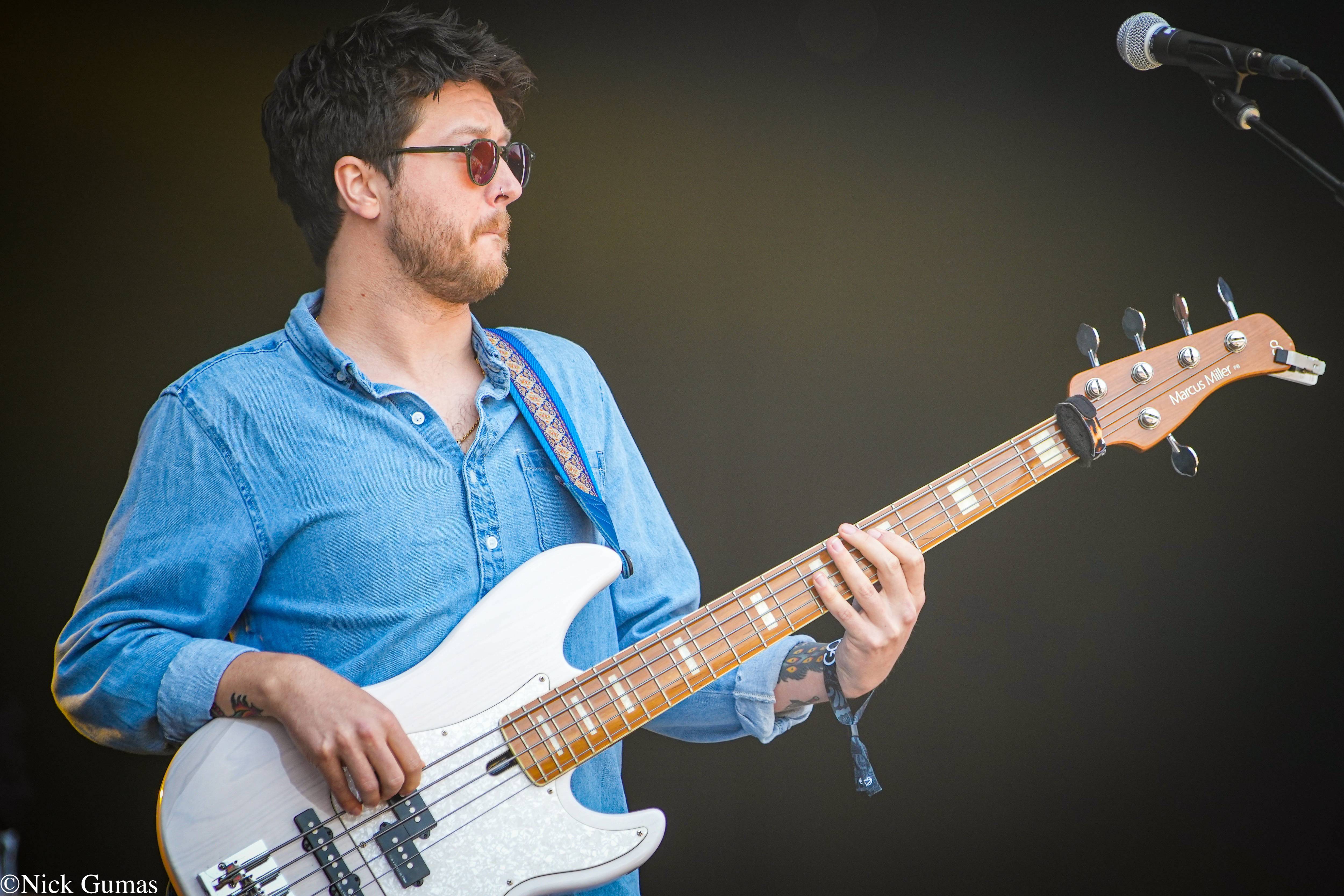
GW: I know you’re not a traditional jam band, but you do leave time for extemporizing in every show you play. Why do you feel it's important to take a few minutes every set to play without a game plan just to see where it goes?
RB: I came from a background of loving jam bands and went to jazz school and had both mentalities, but there's something special about each night. There's a different energy amongst the crowd and they bring it just as much as we do. So it's really fun to play with that and to kind of keep a quality of improvising in the set because the crowd can feel a bit more connected to that. They know that they're in a moment that's just gonna happen tonight, you know, and that's a very special thing about what the jam band scene is. People get to experience something different each night if they see the same band 10 times in one week.
GJ: I think it's also fun for us because when you play the track, you're on tour for three weeks, you're playing 28 shows, night after night, it can feel like the same thing over and over again and a jam changes every night. I think there’s some liveliness for us too when we don't know what's about to happen.
AR: I also feel like when you practice your instrument, there's always that time that you cut out to just groove and fuck around or even at the beginning, warm your hands up. And it's one thing to improve that improvising alone, it's another thing to do it in front of a crowd. There's a weirder pressure. It's just different. So I feel like I've grown a lot as a musician by having the room to improvise on stage and know how to solo, just see what gets a row and what doesn't. It's also a really exciting opportunity for myself, us as a band, and us as people who are building a language together to grow, so of course, that goes back into the writing. So I think it just overall beefs us up in a really cool way and the people fucking seem to really like it.
MO: And when we get in a certain zone there's a feeling that emerges that I think if we're feeling it, like we were talking about before, if what we're feeling is this freedom to explore instead of just doing what's rehearsed, then it opens the channel for something else to come in, and yeah, rock and roll.
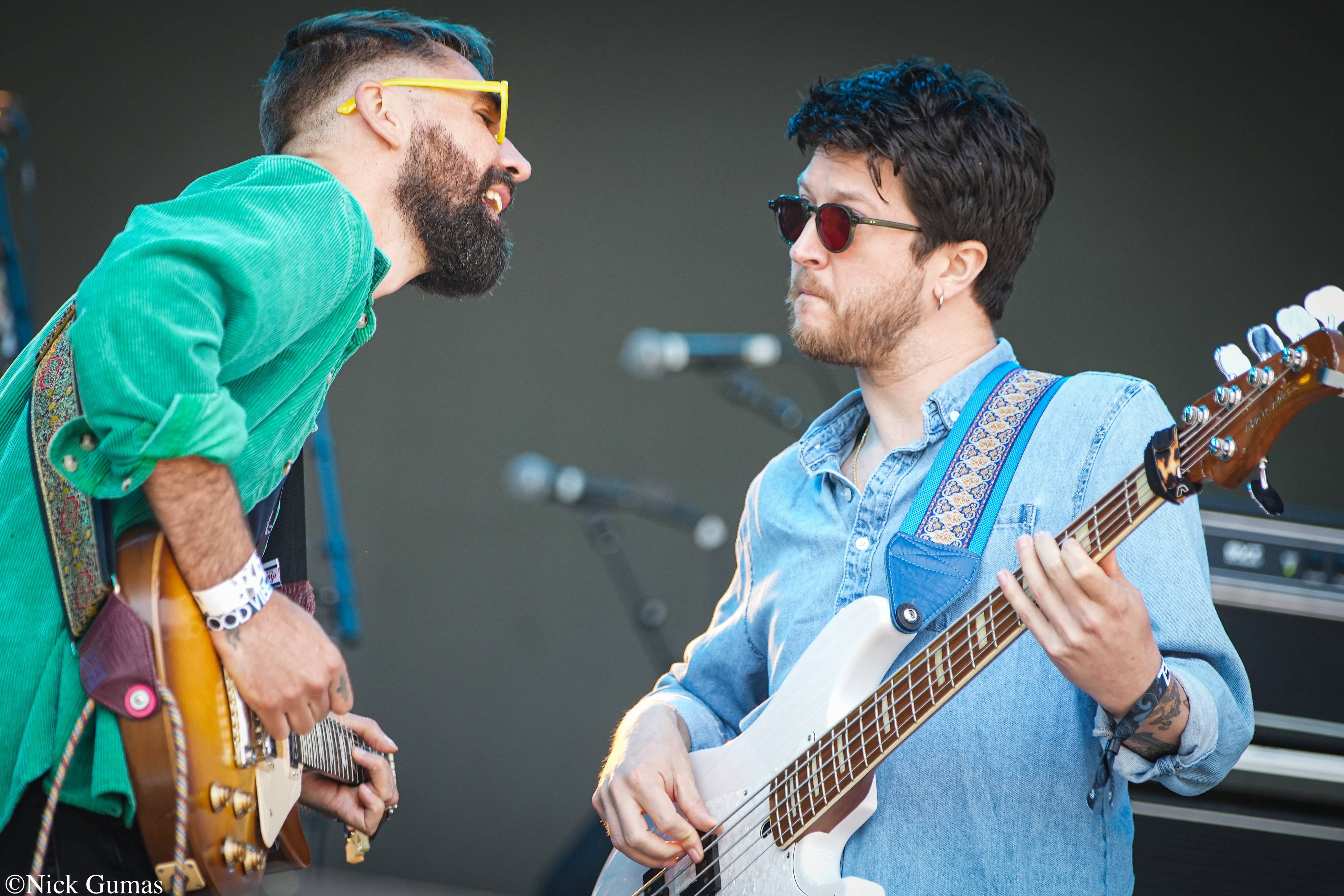
GW: Is there anything you want to plug?
MO: We'll be at Reggae Rise Up in Baltimore next month.
AR: We're playing in Manhattan on June 19th at the Knitting Factory, their new Manhattan location. Then we're doing Milk Boy in Philly. We got a show in Asbury Park on July 11th. And then a big West Coast tour in August opening up for The Hip Abduction, that’ll be fun.
GW: You guys have been on the road doing interviews for the last couple of years now. What's one question you've never gotten in an interview before?
GJ: We love to go deep in conversation, the four of us. It's very normal for us. So, like just spiritual conversations. That’s something that we haven't been talked a lot about that but we're always down to talk about the inner journey.
